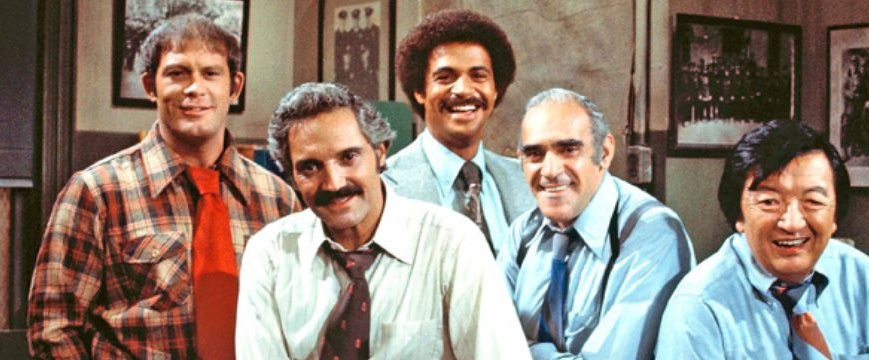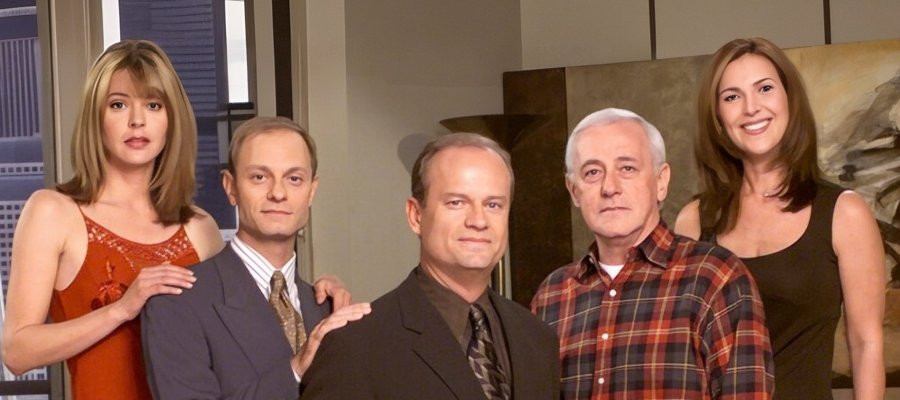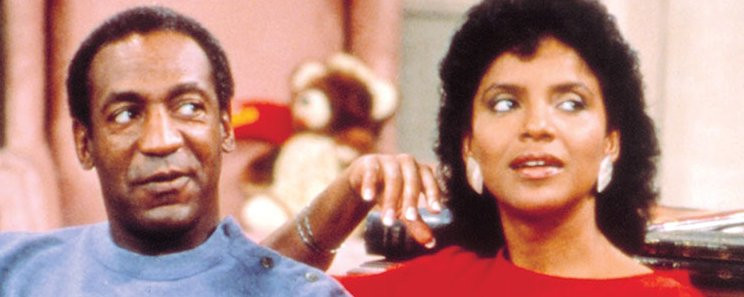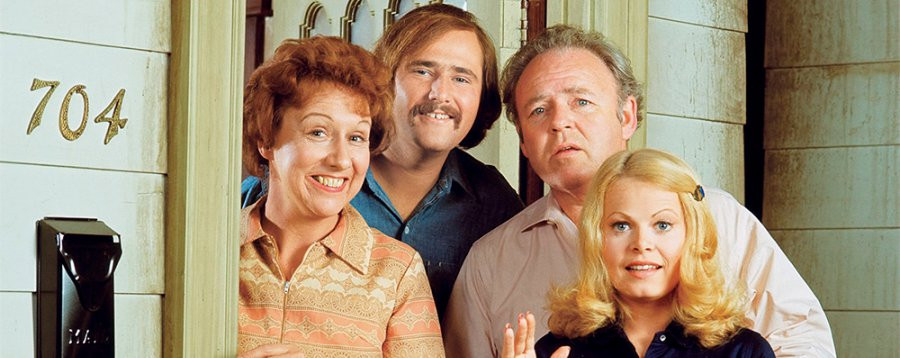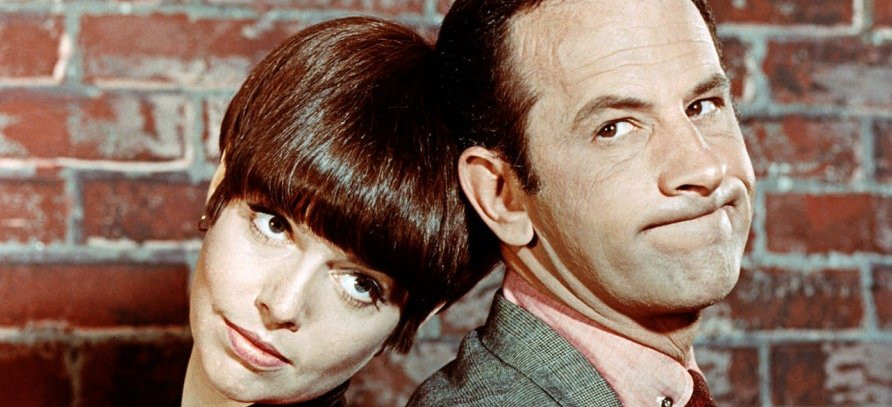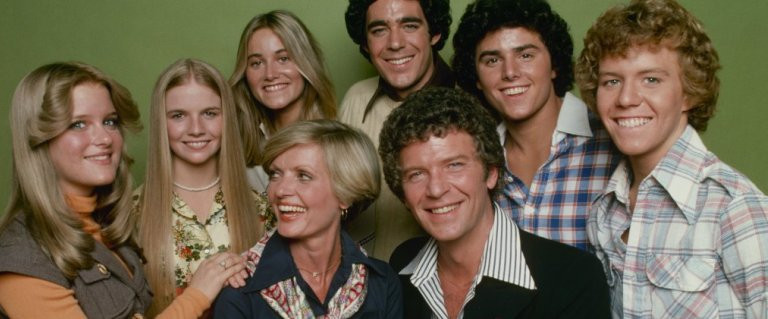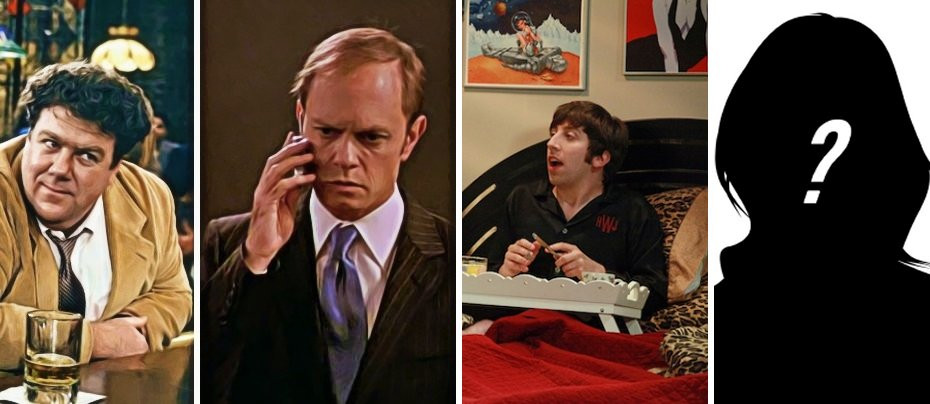
The Offscreen Comedy Gems
Article: Brian Slade
There have been some wonderful comedy characters across the years of sitcoms from the other side of the Atlantic, but there are some whose presence was felt, lines spoken, but never fully seen and yet who became successes in their own right. Here we celebrate some of those folks who you will have heard talked about, sometimes heard, never seen, but hopefully remember well.
Hello. This is Carlton…
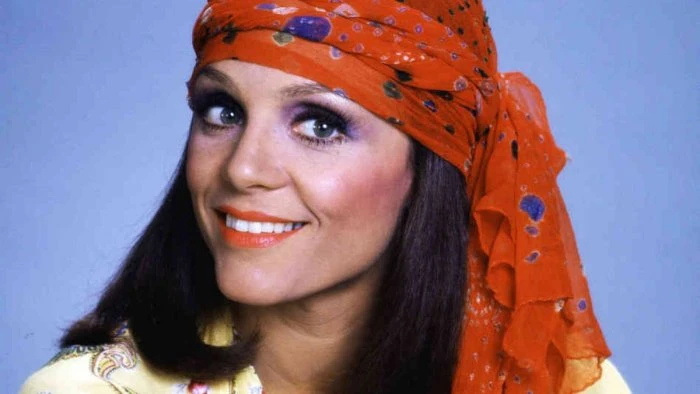
With the plethora of nostalgia channels and box sets available for binge watching, some hugely successful sitcoms don’t perhaps get their due credit if for some reason they haven’t found their way to the masses in recent years. One such show was the successful Rhoda, a spin-off of the Mary Tyler Moore Show starring Valerie Harper as Rhoda Morgenstern, a young woman navigating life in the chaos of 1970s New York. The show was a huge initial success, although its early form fell away somewhat in the latter stages of its five seasons. However, Rhoda has the unlikely situation of its most famous catchphrase coming from a character not seen. Rhoda lives in a door-manned apartment in Manhattan, and lazily and depressingly controlling who gets in is Carlton. For five seasons, incoming characters to Rhoda’s home would be announced courtesy of a buzz and subsequently the phrase, ‘Hello, this is Carlton your Doorman…’
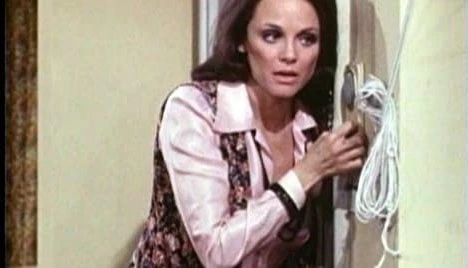
Carlton’s success came courtesy of the monotone depressed tones, somewhat added to by apparent drinking. However well known to Rhoda and her friends and family Carlton was, he always insisted on announcing and explaining who he was when buzzing the apartment, and describing who was wanting access to the apartment, even though he knew who they were. He had varying levels of insight to offer Rhoda as she worked her way through dating, marriage and divorce. He would be seen in snippets of isolated limbs now and again, with the only time he was technically fully visible coming when he was entirely concealed by a gorilla costume.
Lorenzo Music, a writer working on the Mary Tyler Moore Show, brought such fame to the role that he recorded a novelty single, created an Emmy award-winning spin-off animated pilot, sadly not picked up for a full series, and his voice was deemed perfect to become Garfield for many years of television specials. His slovenly demeanour sat perfectly for the lazy, Monday-hating lasagne eating moggy, a success which made Music famous worldwide while almost never recognisable.
If it’s Vera, I’m not here
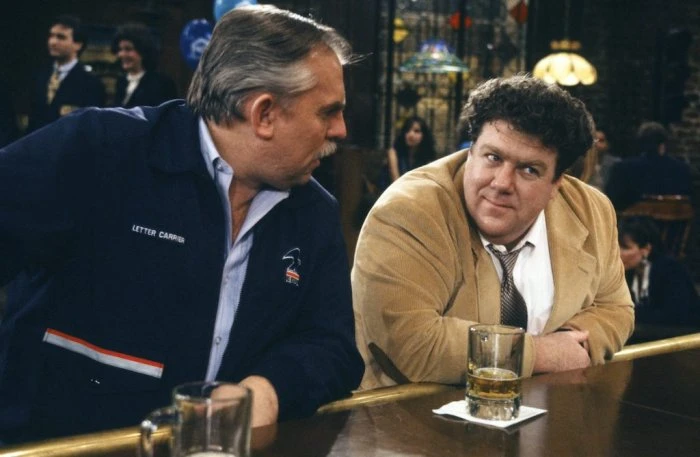
In 1982, NBC aired Cheers, a comedy show set around the lives of the staff and regulars of a Boston bar. It struggled to find an audience in its first season, but went on to become one of the biggest sitcoms of all time and the presence of which nearly 30 years after its end is still felt as Kelsey Grammar considers resurrecting one of its most famous barflies, Dr Frasier Crane. One of the joys of Cheers was how well every character was developed over its eleven seasons, without a single dud among them. Amazingly that even applied to the almost entirely unseen Vera Peterson.
As with most of the clientele at the bar, Norm Peterson’s back story was developed over time. The first customer we hear from in the show, Norm (George Wendt) is initially simply a very lazy accountant who wishes to spend the majority of his time drinking at the bar, eating beer nuts and watching anything that appears on the bar’s TV set…essentially, anything to avoid returning home to his wife, Vera.
Over time, Norm becomes adept at avoiding everything with his wife…he doesn’t want to be at home any more than he has to, doesn’t want to go anywhere with her and seemingly shows no compassion for her. He mostly tries to avoid talking to her when she calls the bar, but even when he does take her calls he shows little to no interest, such as the time she calls asking where their fire extinguisher is. After hanging up on the call, Norm is asked why she needed to know, to which he responds, ‘should I have asked?’
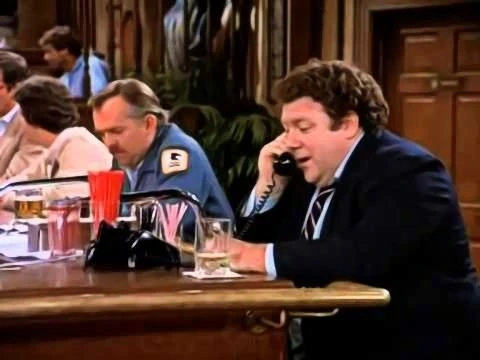
It’s clear Norm doesn’t consider his wife a lady of fine looks. He finds Vera’s sister, another we never see, to be more attractive. Vera is described at one point as a Charles Bronson lookalike. When discussing why he and Vera have never had kids, he admits that he can’t. His sympathetic audience assumes that he is unable to provide children, a misunderstanding he quickly corrects: ‘No, I mean I look at Vera…I just can’t.’
Despite all the insults and avoidance, Vera remains Norm’s true love and when offered temptation elsewhere Norm always avoids it in deference to his wife. We do eventually see Vera in part in two separate scenes – one in which she sits forlornly on the stairs to the restaurant above Cheers, Marios, having been fired. The other time is during the chaotic slapstick Thanksgiving episode when she takes a pie in the face from Diane (Shelley Long). They are the only snippets across all 11 seasons, but they were enough to have an actress assigned to the character in the form of Bernadette Birkett. And to paraphrase Norm’s best bar buddy Cliff Clavin (John Ratzenberger), here’s a little known fact…Birkett was married to Wendt having met through improvisational comedy club, The Second City.
The Queerest Little Creature

If Cheers had conjured images of Norm’s wife Vera, the idea of an unseen spouse went into overdrive on the ultimate spin-off success, Frasier.
For much of Cheers, Frasier Crane is assumed to have no family, but when the Boston shrink moves to Seattle, he is reunited with his brother, highly strung socialite Niles (David Hyde Pierce). Niles is married to one Maris Crane, often spoken of but never seen, usually due to some kind of absurd drama that has befallen her. Quite what form Maris takes is almost impossible to imagine, primarily because of the flood of descriptions and her ever changing form. Medically, she is clearly a fragile individual. At various times, Niles describes her attempts to remain young via surgery, a brave move for somebody already so averse to outside influences. He assures her that she cannot gain weight from a glucose IV and describes the range of cosmetic surgeries she has dabbled in…chin, lips, cheeks, eyelids…the list is hinted to go on for much longer, and long after Niles and Maris separate we are witness to Niles discussing billing errors with Maris’s plastic surgeon, a meeting in which dolly trollies are needed to wheel in the boxes of paperwork.
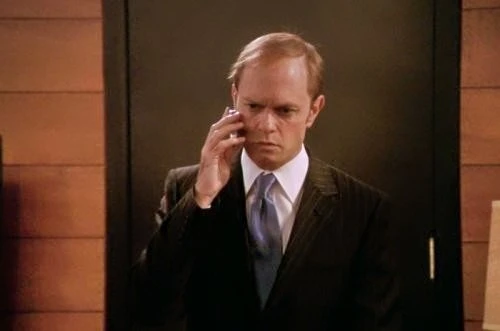
The writers initially thought about bringing an actress in to play Maris in the opening season, but keeping her as a character in the background allowed them to develop her into the most absurd character imaginable, so much so that she eventually reached a point where it would no longer be possible to cast her. Producer Peter Casey commented that, “Everybody has their own vision of what Maris looks like. Frankly, with some of the things that have been written about her in the scripts I don’t think we could ever find anybody to match all those things.”
With that, Maris began to develop evermore character traits. When Diane Chambers guests in an episode, she recalls her first encounter with Maris - “she was the queerest little creature. She ate everyone’s sorbet and then she had to lie down in the ladies’ lounge while the coat check girl massaged her abdomen.”
Eventually, Maris was taken to the next level. She had her own story arc as she killed her boyfriend with a crossbow that Niles had loaned her, leading him to become a suspect and causing great friction with his new love, Daphne Moon (Jane Leeves). There’s no doubting that Maris was one of the most extreme sitcom creations never to be seen or heard, but her absurdity generated more laughs than many on-screen characters succeed in achieving, a testament to the genius writing talents behind Frasier.
Hi-dee-ho Neighbour

Spanning eight seasons in the 1990s, Home Improvement became one of America’s most successful comedies of its time. Starring Tim Allen, it tells the story of a man hosting his own DIY home improvement cable show and the family life that he leads. Tim Taylor is a wisecracking ‘man’s man’, heavily into sports, cars and power tools. That his three children are all boys is a joy to him as he can continue to bring them up in the perceived manner of the stereotypical male. Resistant to this is his wife Jill (Patricia Richardson), and so as he tries to evolve from his largely sexist views he needs a moral compass from somewhere and it more often than not comes from his neighbour, Dr Wilson Wilson Wilson Jr, known far more simply as Wilson.

With no female aside from his wife in his day to day life, Tim’s often to be found wandering the garden peering up at the high fence between his and Wilson’s home next door. Wilson himself (Earl Hindman) is ‘seen’ in every episode, but never fully. To begin with his face was partially obscured by the fence, but as the series progressed the writers came up with all manner of ways to ensure that some part of him was obscured…no mean feat given that he was in all 204 episodes. The scenes would sometimes be simple object placement, such as behind a painter’s easel, or he might be silhouetted through a tent, or simply be turned away from the camera.
In addition to his lack of full visibility, Wilson offered quality life lessons to Tim. He would normally be greeted with a ‘what are you doing Wilson?’ from Tim and when offering a response there would normally be an innuendo response from Tim, before Wilson would impart his wisdom. In a way, Wilson was a more tolerable variation of Cliff from Cheers. The major difference was of course that Cliff spouted obscure nonsense, normally quoting (or misquoting) a source without ever having actually experienced the event or emotion he was discussing. Wilson was the real deal…he invariably carried the wisdom from the extensive travelling and intensive life that he had enjoyed – he even confessed to being a cousin to the Wilsons of the Beach Boys, proven when the group’s line-up of the time appeared on the show. Certainly Tim’s growth as a father and husband, and indeed as a sitcom character, would have been stunted without the always helpful and never fully visualised Wilson.
Mrs Wolowitz
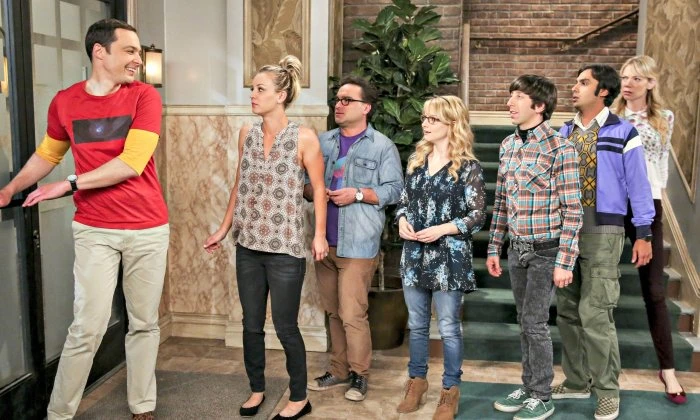
Wrapping up the collection of unseen Stateside comedy characters comes the loudest and most abrasive of the bunch…Debbie Wolowitz. Something rarely seen across the twelve series of smash hit The Big Bang Theory were the parents of any of the lead characters. Initially five and of course eventually seven, the lead characters’ fathers and mothers were limited to occasional guest appearances, but the one most frequent guest star was the one never seen. Howard Wolowitz (Simon Helberg) lives at home with his mother. An only child whose father deserted him as a boy, Howard’s self-confidence is undermined by the life he leads at home. Of the five lead characters in the first season, he is the only one who has a parent heavily influencing his world…and Mrs Wolowitz excels.
Mrs Wolowitz was played by Carol Ann Susi and it is testament to her portrayal of the dominant matriarch that when she passed away there was an outpouring of grief from cast and fans alike. On rare occasions, limbs or outlines would be seen, but for the majority of the time, Mrs Wolowitz was just heard…by most of America. Any doorbell or conversation would incite the yelling of the over protective parent from another room, normally weighing in with inappropriate terminology and dominant advice, inevitably to protect her ‘Howie.’

As The Big Bang Theory grew, so did Mrs Wolowitz’s involvement. Initially as much a figure of ridicule as anything, frequently referenced by her size, the character was developed to become a favourite of the gang. She would be terrified of Howard’s trip to the International Space Station as any mother would, welcome (eventually) Howard’s fiancé Bernadette (Melissa Rauch), who would take on a remarkably similar yelling quality as the series progressed, and when Howard moved out Mrs Wolowitz would welcome Comic Shop oddball Stuart (Kevin Sussman) into her home.
When Susi passed away, her character’s death was written into the story with much warmth, never more so than when Howard bemoaned the last of her batch-cooked food from his freezer being defrosted. It’s a testament to the writers and the departed actor that so much affection could be generated for an off screen character.
There are of course other characters from sitcoms that didn’t quite make the list. Taxi had Mr McKenzie, the tyrannical boss of the Sunshine Cab Company who was the only person to whom sleazy despatcher Louie De Palma (Danny DeVito) would bow. Normally an unseen presence hidden in a room at the garage, he would eventually be seen in the appropriately scary form of Stephen Elliott when Mrs McKenzie (Eileen Brennan) tries to bed Louie in a fit of revenge. It was a fine piece of casting, the like of which would also have been needed were we ever to meet Orson, inquisitive superior to Robin Williams’s Mork in Mork and Mindy. Mork would report after almost every episode with the summation of his findings, starting with the infamous, ‘Mork calling Orson – come in Orson.’ Ralph James voiced the mystical leader as he offered a quizzical ear to the lessons in humanity the alien had learned.
Whoever your favourite is, writers have made the most of some great off screen characters and doubtless revelled in the freedom to extend them to fully formed, usually absurd characters – or even caricatures - and this little roll call suggests that wherever they are to be found they have added some great success to some hugely successful shows.
Article by Brian Slade:
Born and raised in Dorset, Brian Slade turned his back on a twenty-five-year career in IT in order to satisfy his writing passions. After success with magazine articles and smaller biographical pieces, he published his first full-length work, `Simon Cadell: The Authorised Biography'.
Brian is a devoted fan of the comedy stars of yesteryear, citing Eric Morecambe, Ken Dodd, Harpo Marx and Dudley Moore amongst his personal favourites. He was drawn to the story of Simon Cadell through not only `Hi-de-hi!' but also `Life Without George', a programme he identified with having grown up in the Thatcher era.
Published on December 22nd, 2021. Written by Brian Slade for Television Heaven.


